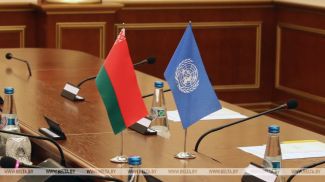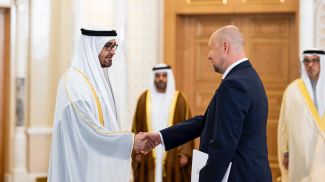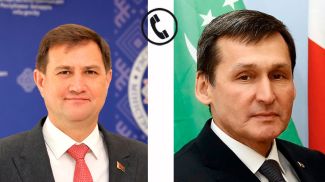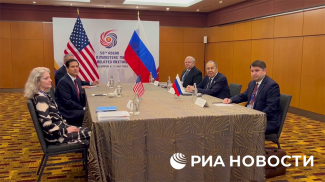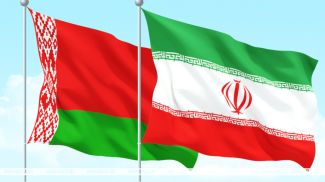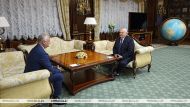MINSK, 22 January (BelTA) – An informal meeting has been organized in line with the Arria formula to discuss the work of mass media in Belarus. First Deputy Permanent Representative of the Russian Federation in the United Nations Organization and the UN Security Council Dmitry Polyansky described the meeting as a provocation and an attempt to interfere in affairs of a sovereign state, BelTA has learned.
Russia's representative pointed out that informal meetings held in line with the Arria formula are meant to invigorate discussions about the topics on the agenda of the UN Security Council, however, there are no items, which are related to Belarus, on the agenda. “Thus, today's meeting represents a blatant provocation and an attempt to interfere in domestic affairs of a sovereign state,” Dmitry Polyansky stated.
Dmitry Polyansky also believes that the organizers, in particular, Estonia, had not wanted an open discussion from the very start but an illusion of international unity on the matter on the agenda.
According to Dmitry Polyansky, there are many more interesting items to talk about than events in Belarus. Situations when a losing side fails to recognize election results are quite common in international practice. As an example the Russian diplomat referred to the USA and mentioned the great difference and the double standards used by a number of Western mass media to cover events in the USA and events in Belarus. While actions of protesters in the USA violate the law, actions of the Belarusian opposition are supported and the introduction of sanctions is encouraged.
Dmitry Polyansky condemned interference in domestic affairs of the sovereign state and noted that in addition to condemning actions of the Belarusian government to protect the law and constitutional order a number of Belarus' neighbors support and harbor opposition figures. Meanwhile, the opposition gets foreign funding while Belarusian law enforcement officers and their families face direct threats. Dmitry Polyansky wondered for how long such actions will be tolerated in other countries.
As for the freedom of the media, Dmitry Polyansky pointed out that it is a problem in many countries but no Arria formula meetings are organized to discuss them. As an example he mentioned the blocking of Donald Trump's accounts in social networks when he was still the U.S. president. In his words, it is a vivid violation of the freedom of speech.
Such examples are abundant, Dmitry Polyansky continued. There are great problems in the mass media industry in Estonia, which is one of the organizers of the informal meeting. “Estonia and its Baltic neighbors have been organizing crusades against the freedom of the media for decades, primarily their own domestic and foreign Russian-language mass media,” the diplomat stated. He also mentioned various kinds of administrative pressure and repressions against politicians, public figures, human rights activists, and reporters, whose opinion differs from the government's.
The discussion was held online in line with the Arria formula. In other words, it was informal. The procedure has been named after the Venezuelan ambassador Diego Arria, who started using the practice in 1992. Any member of the UN Security Council can convene meetings in such a format and can invite public figures or non-commercial organizations to act as speakers. Other countries cannot block such meetings, however, the meetings do not take place in the chamber of the UN Security Council, do not produce any resolutions or other official documents. Other members of the UN Security Council may opt out of such meetings.




